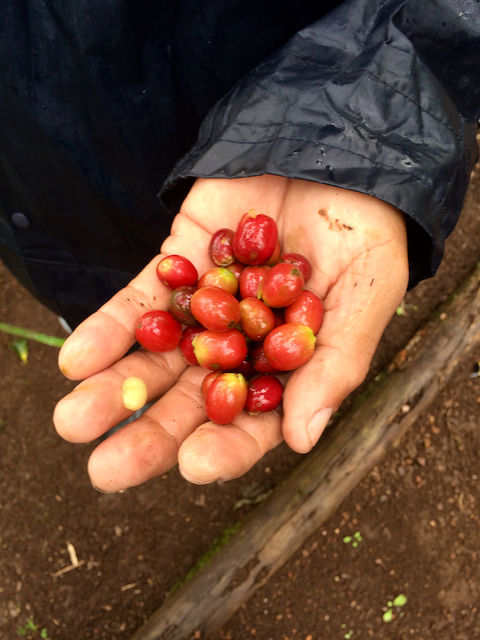Developing Worldschooling Curriculum: Agriculture

Almost anywhere we go, there are local agricultural crops and industries that can serve as an excellent jumping-off point for all kinds of learning. “Coffee,” for example, provided a theme for a variety of experiential and academic activities while we were in Matagalpa, the mountainous, coffee-growing region of Nicaragua. A touch of internet and guidebook research revealed the importance of the coffee value chain in the area, so I proceeded to build a few weeks of worldschooling curriculum around that theme.
We started off with a visit to the National Coffee Museum in Matagalpa to gather information about the history and structure of the coffee industry in Nicaragua and Central America. I researched the museum ahead of time (via its website and tourists’ comments on TripAdvisor) to develop a personalized scavenger hunt adapted to each kid’s level, which our youth hostel’s business services kindly printed out for us (so I did not have to handwrite the activity three times). I incentivized my kids to complete the museum scavenger hunt with the coffee-related promise of specialty whipped cream-topped mochas at the local coffee shop for those who succeeded in completing the worksheet. The scavenger hunt included: factual questions, like “name a fruit tree that is often farmed alongside coffee plants,” and “list the top three countries to which Nicaragua exports coffee”; identification challenges, like “find five different pictures of coffee beans”; and artistic tasks, like “in this square, draw a coffee plantation landscape”.
Our introduction to the coffee industry through the museum then provided a solid grounding for subsequent riffing on a broad range of topics—from economics and politics to agricultural and environmental practices, to mathematics and business. Our subsequent curriculum included for example:
- A Youtube documentary on Gross National Product and market supply and demand;
- Discussion of natural resources, colonialism, post-colonial exports and market relations, and applying these dimensions to compare coffee to other crops we had run across, like sugar cane in Cuba, and later spices in India and Portugal;
- Identifying the many steps along the value chain from planting seeds in Nicaragua all the way to buying a latte at a Starbucks in Seattle;
- Reading together and independently about farming techniques and their impacts on biomes, climate and global warming;
- Visiting a nearby processor to see and touch fresh berries, learn from local farmers about growing conditions and quality grading, and to watch the sorting machinery in action;
- Writing and solving arithmetic word problems about kilos of coffee beans and making change for a cappuccino;
- Looking for and reading coffee packaging in the grocery store, and identifying around town the coffee packaging, exporting and transport evidence we could find.
We capped off our coffee industry immersion with a four-day stay at an organic, fair trade, working coffee farm, at the Finca Esperanza Verde eco-lodge. An hour’s truck ride up rugged mountain backroads from Matagalpa, Finca Esperanza Verde’s sprawling grounds were dotted with thriving cacao plants shaded by banana trees and laden with red berries. These were tended by a friendly team of farmers who were happy to show all of us how organic coffee farming worked. Since we were working remotely at the time, we had to keep moving, but some friends of ours negotiated an enviable wwoofing arrangement on the farm and stayed there with their kids for month, helping with farm tasks.
In sum, I often find that the smallest kernel of information about a place’s agricultural products can lead to a wealth of fun curriculum ideas. In this case, a friend’s offhand recommendation that we visit Finca Esperanza Verde led me to research Matagalpa, and since we had to slow-travel to make things work, I was inspired to find ways to make our weeks in the region as engaging and multifaceted as possible. Coffee struck me as a worthy theme on many levels, and the more I looked, the more I found to tickle all our senses and school subjects with the story of coffee. The same is true everywhere we go. Although sometimes my research of any given theme leads me to a dead end, more often than not, turning over a few stones in the agricultural category reveals easy treasure.
0 Comments Add a Comment?